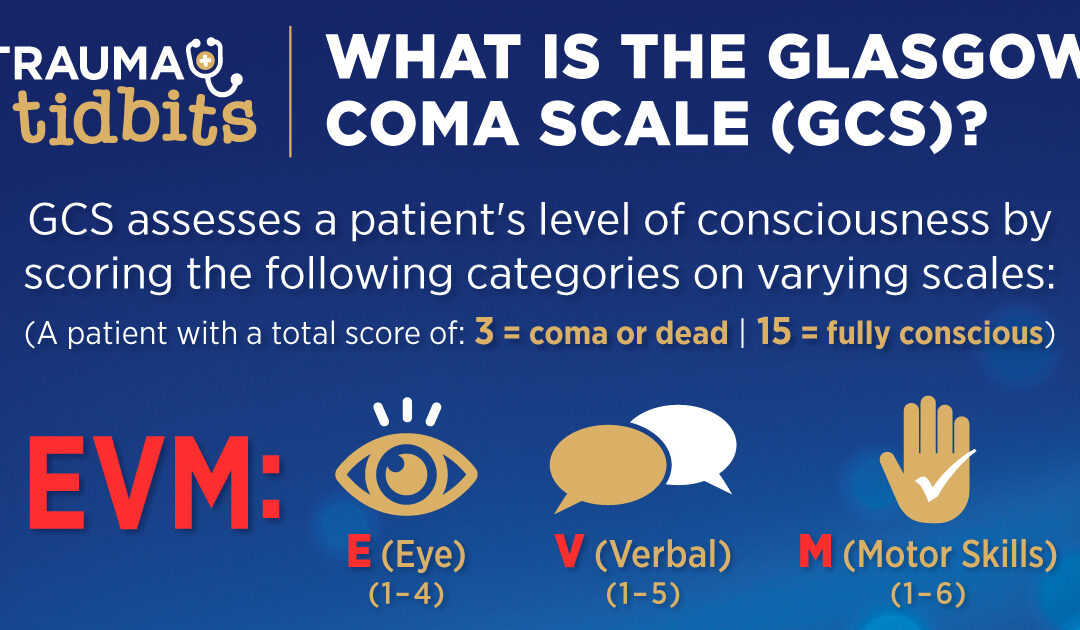The Glasgow Coma Scale (GCS) is a crucial tool used by medical professionals worldwide to assess a person’s level of consciousness after a head injury. Developed in 1974 by Professors Graham Teasdale and Bryan Jennett at the University of Glasgow, this scale provides a reliable and objective way to gauge the severity of brain injuries and guide subsequent medical treatment. The GCS is divided into three main categories: Eye Opening, Verbal Response, and Motor Response. Each category is scored separately, and the sum of these scores determines the overall severity of the injury. Let’s delve deeper into these categories to understand how the GCS works.
Eye Opening (E)
The Eye-Opening category evaluates patients’ ability to open their eyes in response to stimuli. This category has four possible scores:
4 – Spontaneous: The patient opens their eyes without any external stimulus.
3 – To Speech: The patient opens their eyes when spoken to.
2 – To Pain: The patient opens their eyes only in response to a painful stimulus.
1 – None: The patient does not open their eyes, even in response to pain.
Eye opening is a crucial indicator of the patient’s level of arousal and awareness. Spontaneous eye opening suggests a higher level of consciousness, while the absence of eye opening indicates a more severe impairment.
Verbal Response (V)
The Verbal Response category assesses the patient’s ability to produce coherent speech and respond to questions. This category has five possible scores:
5 – Oriented: The patient is fully oriented, can engage in conversation, and can correctly identify themselves, the date, and their location.
4 – Confused: The patient can speak but needs clarification and clarification.
3 – Inappropriate Words: The patient responds with random or inappropriate words that do not make sense in the context.
2 – Incomprehensible Sounds: The patient makes sounds, such as groans or moans, but no recognizable words.
1 – None: The patient does not produce any verbal response.
The verbal response score helps determine the patient’s cognitive function and communication ability. Higher scores indicate better cognitive function, while lower scores suggest more significant impairment.
Motor Response (M)
The Motor Response category evaluates the patient’s ability to move their body in response to commands or stimuli. This category has six possible scores:
6 – Obeys Commands: The patient follows simple commands like “squeeze my hand.”
5 – Localizes Pain: The patient moves purposefully to localize and try to remove a painful stimulus.
4 – Withdraws from Pain: The patient withdraws their limb in response to a painful stimulus.
3 – Abnormal Flexion (Decorticate Posturing): The patient exhibits abnormal flexion of the limbs in response to pain.
2 – Abnormal Extension (Decerebrate Posturing): The patient exhibits abnormal limb extension in response to pain.
1 – None: The patient does not exhibit any motor response.
The motor response score is crucial in assessing the patient’s ability to perform voluntary movements and overall neurological function. Higher scores indicate better motor function, while lower scores suggest more severe impairment or damage.
Summarizing the GCS Scores
The total GCS score is the sum of the Eye Opening, Verbal Response, and Motor Response categories. The scale ranges from 3 to 15:
- Mild Injury: 13-15
- Moderate Injury: 9-12
- Severe Injury: 3-8
A higher total score indicates a higher level of consciousness and better neurological function, while a lower score suggests a more severe brain injury and reduced consciousness.
Importance and Applications of the GCS
The Glasgow Coma Scale is an invaluable tool in the initial and ongoing assessment of patients with head injuries or other conditions affecting consciousness. It helps medical professionals quickly determine the severity of an injury, make decisions about immediate treatment, and monitor changes in a patient’s condition over time. The GCS is widely used in emergency rooms, intensive care units, and trauma centers worldwide, highlighting its importance in modern medical practice.
Understanding the GCS and its components can provide valuable insights into assessing and treating brain injuries. Whether you’re a medical professional, a caregiver, or someone interested in learning more about how the human brain functions, the Glasgow Coma Scale is a fundamental concept worth exploring.







